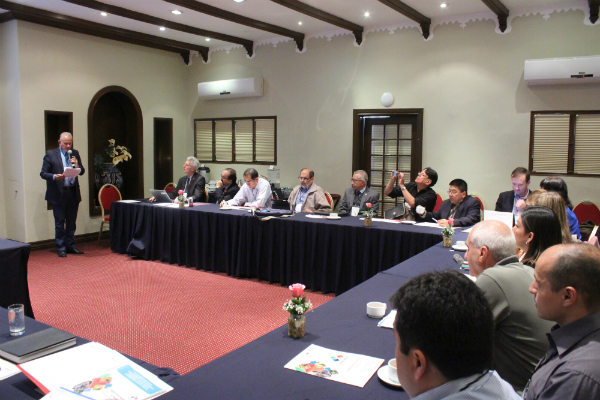
Research update towards eradication of scrapie in sheep and goat shared in Mexico
Keeping agricultural and food supplies safe is an ongoing challenge for regulators and inspectors, particularly since there is a continuous flow of new and emerging pests and diseases affecting these products. In order to have effective prevention and management strategies, surveillance and research activities are key. This was an underlying message of the new President – Dr. Jose De la Torre, of the Cooperative Program in Agricultural Research and Technology (PROCINORTE), at a recent meeting of Animal Scientists from Mexico, Canada, and the United States of America Held in Mexico City.
Senior scientists from the 3 countries and a representative of the Caribbean Animal Health Network – CaribVet, discussed the use of genomic tools in animal health research. State of the art work being conducted on genetic sequencing of viruses to support diagnosis of Avian respiratory diseases was one of many research updates shared. Additionally, a practical method for monitoring bovine tuberculosis was presented as an option for developing countries with resource constraints. Using genomics in the identifying scrapie resistance was yet another of the exciting work unveiled. Expanding such research could enhance scrapie eradication and accelerate the opening of import/export markets for sheep & goats in many parts of the world.
Scientists were enthusiastic about the progress being made on current animal diseases and the opportunity for identifying additional bi and trilateral research activities to further advance work was not lost.
Organized by PROCINORTE’s Animal Health Task Force led by Dr. Cyril Gay, Senior National Program Leader, Animal Production and Protection, USDA-ARS, the workshop was designed to address issues of trilateral interest to Mexico, USA and Canada.
PROCINORTE is a network of national agricultural research bodies in the three countries of North America: Canada, USA and Mexico, which supports agricultural trade through sound science and knowledge-sharing in areas of trilateral relevance. It is supported by the Inter-American Institute for Cooperation on Agriculture (IICA) and has it’s Secretariat in Ottawa, Canada.